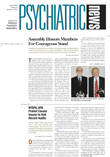As a third-year resident, I had the pleasure of being the coauthor of a publication and would like to encourage other residents to publish. Although lack of time and competing demands can be obstacles, accelerated learning, increased understanding of one’s cases, and professional growth are among the satisfactions of undertaking the task of doing research and writing for publication as a resident.
My first report was about a case of somnambulism in a patient taking sodium divalproex and zolpidem. The patient reported episodes of sleepwalking while taking both medications but not either drug alone. The attending asked me to join him in writing a case report. I had minimal research experience and had not written a case report before. He encouraged me to try and assured me of his continued assistance. As it turned out, it was not difficult to produce the initial draft, as all I had to do was write a concise and coherent case summary.
A literature search on MEDLINE yielded references on drug-induced somnambulism. The challenge was making sure that I had thoroughly referenced the topic and located the articles. I also gained more insight into the clinical effects of the two drugs, including adverse reactions, and a better understanding of sleep architecture.
The most difficult part of writing the case report was the case-discussion section. Initially I was discouraged by this seemingly daunting task, and I found myself procrastinating. With the help of my attending, I finally dug in.
The process was laborious but also exciting. We had to provide as much objective evidence as we could for the adverse reaction while acknowledging the limitations of routine clinical care. The best evidence would have been a polysomnogram, but it was not indicated for a condition that could be cured by drug discontinuation alone. I learned about the Naranjo Adverse Drug Reaction Probability Scale, which is an objective measure of an adverse drug reaction. It resulted in a micro dissection of the case, bringing many clinical pearls my way. Ultimately we concluded that a probable interaction between zolpidem and sodium divalproex led to somnambulism.
In our efforts to have the manuscript conform to the journal requirements, I learned the art of weeding out extraneous material while retaining important case details. The sharp reviews by my co-authors and the journal editors further refined the manuscript.
Although the submission and review process took several months, the joy of having my first publication while a resident was worth the time and effort. I strongly feel that the guidance and support of mentors are critical for enhancing residents’ professional growth. During the preparation of this case, my mentors helped me recognize potential confounding factors and cautioned me about jumping to conclusions.
The most common reason cited by residents for not doing research and writing is lack of time due to clinical responsibilities. Although I agree that residents’ clinical workload can be tiring and time consuming, it is not impossible to do literature searches about unusual cases, which can positively influence case management.
Even if a research career is not a goal, residents who plan an academic career must be able to read critically, assess medical literature, and possess good writing skills. Participation in scholarly activity (publishing papers, presenting abstracts, submitting grant or protocol proposals, and so on) during residency can be a valuable experience that contributes to professional growth.
Case material is everywhere: you can encounter unusual cases either in your outpatient clinic or at 3 a.m. in the ER. Not only are novel cases of interest to other psychiatrists, but also they contribute to the growing science of psychiatry. It is ultimately we who have the duty to disseminate such valuable information.
Journals like Psychiatric Services and the Jefferson Journal of Psychiatry have sections dedicated to contributions by and for trainees or about training in psychiatry.
The experience of publishing has spurred me to write more papers. I have another case report accepted for publication and a couple more manuscripts in the submission process.
I would like to quote a remark by James T. Hardee, M.D., in the November 1997 Observer, published by the American College of Physicians: “Publishing is a slow birthing process. But once you get your first one done, it’s sort of addictive.” ▪

